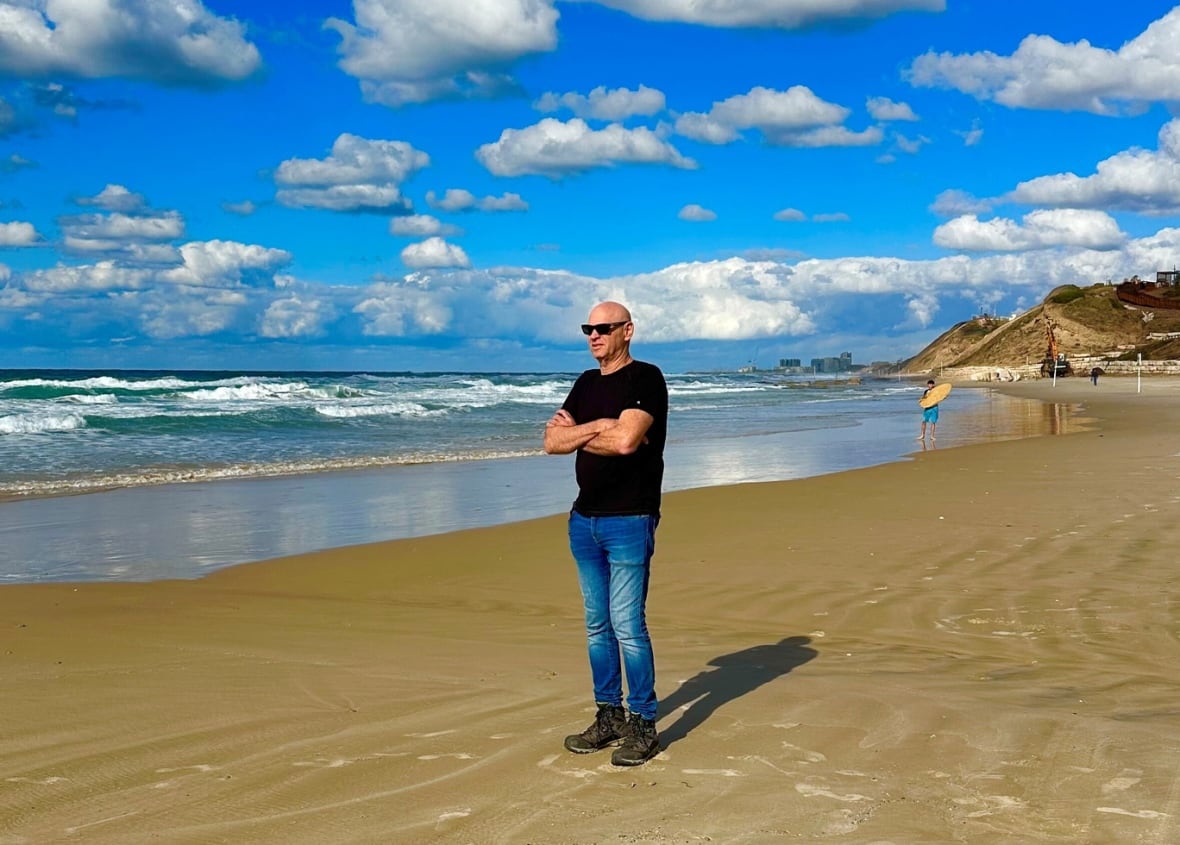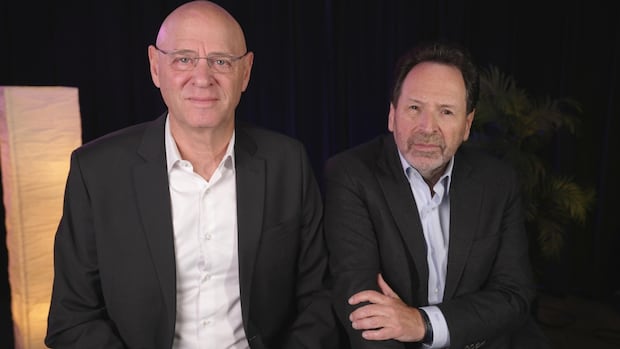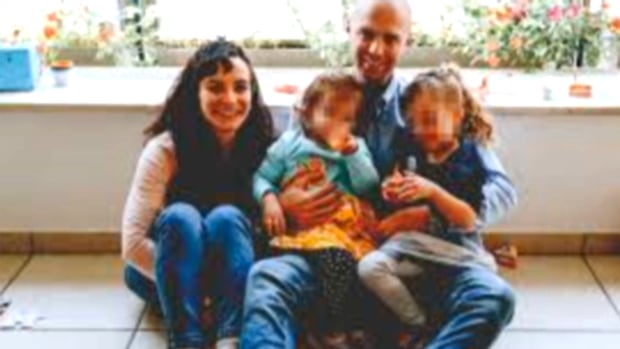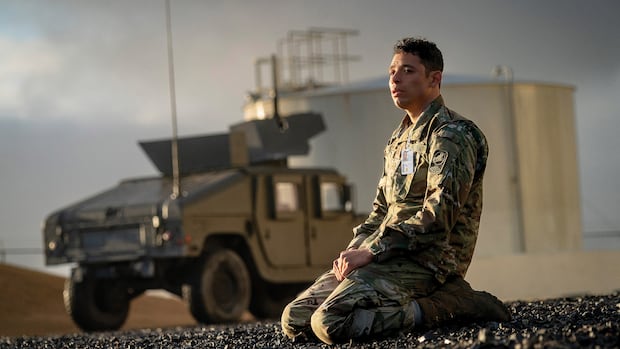Retired Israeli military general Noam Tibon was enjoying a quiet morning on Oct. 7, 2023, when he received a text from his son, Amir, that he never could have expected.
Hamas was in his family’s kibbutz, Amir told his father, and they were killing people.
“At that moment, [I made] a decision that I’m using all my skills, all my experience, everything, in order to save my family,” Tibon told CBC News. “And I think this was the most important decision that I took on that day.”
So he headed out on a 14 hour journey to save his son’s family, completely unaware of what danger might lie ahead.
Tibon says his story is about the lengths we go to for family. And director Barry Avrich, who turned that story into the documentary The Road Between Us: The Ultimate Rescue, is excited to have his movie judged by audiences at long last.
Documentary pulled, then reinvited
The film has been on a roller-coaster ride since Aug. 13, when TIFF pulled the film from its lineup over concerns about footage rights and security issues, though the festival said at the time it was still trying to work through those concerns with the filmmakers.
That decision sparked fierce backlash, including from Israeli politicians and Jewish groups from Canada and abroad.
The next day, both parties announced that they’d ironed out the concerns, and that the documentary would screen at this year’s festival.
Now, Avrich says the decision to see the film or not rests with the audience.
“If you don’t want to go, don’t go. If you don’t want to buy a ticket, don’t buy a ticket,” the Canadian director told CBC News.
Already, the film has drawn demonstrations. Over the weekend, a few dozen protesters waved Palestinian flags and brought blankets smeared with fake blood as props. One protester told The Canadian Press that he was worried about the festival “art-washing” Israel’s military actions in the Gaza strip.
Ultimately, Avrich says it’s OK if some people don’t like the film, as the point of festivals is to expose people to new ideas and generate discussion.
“That’s what it’s about,” he said, adding that TIFF should be “bringing audiences to films sometimes that make them feel uncomfortable.”
TIFF disinvite ‘a very tough day’
Avrich says he was “extraordinarily excited” when he first found out in July that his film had been accepted to the festival.
He says that around that time, TIFF organizers had questions about some of the footage he used — specifically, they wanted to make sure that the documentary used real footage rather than re-created scenes, and that video taken by Hamas was properly identified.
Avrich says his film team always intended to properly label Hamas footage in the final cut, and that there are no re-created scenes in the film, so he was confident they could work those details out with the festival.
But he says concerns about how the audience would react to the film and whether including it would allow for the “right mix in terms of the programming for the festival” came up as well, which he says was what ultimately led to the film being disinvited.
While he’s had films rejected from festivals before, Avrich said this decision was particularly difficult. “Once you’ve been accepted, to then find out you’re not in anymore … it was a very tough day,” he said.
TIFF didn’t reply to specific questions from CBC News, but CEO Cameron Bailey has previously apologized for the pain that removing the film caused, and for confusion regarding the festival’s requirements.
A joint statement from Bailey and Avrich following the final decision to include the documentary in the lineup, read in part, “TIFF’s communication around its requirements did not clearly articulate the concerns and roadblocks that arose and for that, we are sorry.”
Achieving balance in a lineup of films is an important part of putting together a festival, Avrich says, adding that he believes TIFF’s slate achieves that balance.
The Voice of Hind Rajab and Palestine 36 both tell the stories of Palestinians and are screening at TIFF this year.
“You can’t ignore complicated stories from either side, from any region,” Avrich said. “If you’re gonna tell one story, then let’s look at another story and make sure that you’re giving an audience an opportunity to look at different perspectives.”

Film’s subject heartened by support
For his part, Tibon was heartened by the support from people around the world who called for TIFF to return the film back to its lineup.
He says retracing his attempts to save his family for Avrich’s documentary wasn’t always easy, nor was watching the footage in the final film, which he says took him right back to the day of the attack.
“I was in combat all my life. So I saw bodies, but I never saw such … terrible scenes like in October 7,” Tibon said.
He hopes the movie will make viewers think about their own families, and what they’d do to keep them safe.
“Each one of us who has a family, who has kids, grandkids, this is our entire world. This is the most important thing to our life,” he said. “My goal is that … it will give people courage to take action.”
One year after the Oct. 7 attacks, Israeli journalist Amir Tibon tells CBC’s Matt Galloway about what happened when Hamas-led militants attacked his Israeli border kibbutz and how his father, a retired IDF general, raced through danger to save his family.








